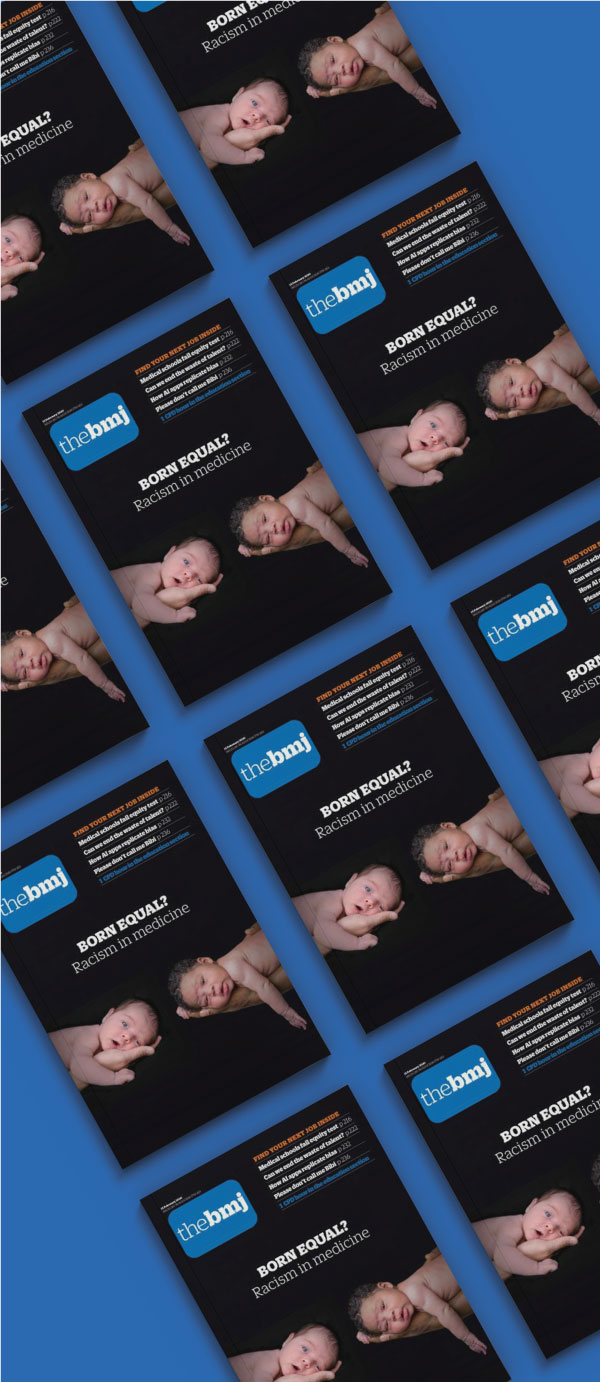
2025 Racism in Medicine: are we making any progress?
Since 2020, we have published landmark collections and ongoing coverage of racism in medicine. The BMJ highlighted the racial discrimination and health inequalities experienced by patients and doctors in a special campaigning issue.
As the first journal publication solely focused on calling for action against racism in medicine, The BMJ directly contributed to the launch of the NHS Health and Race Observatory in May 2021. It also:
- Exposed the lack of data on ethnic health inequalities
- Won the PPA Diversity and Inclusion Award 2021
- Led the University of Nottingham’s Medical Society to reverse a policy not to allow a representative from an ethnic minority group to sit on its committee
- Led to the BMA launching a charter calling on medical schools to end this abuse
The five-year reflection on The BMJ’s 2020 special issue on Racism in Medicine presents a critical moment to assess progress since the heightened focus on racial disparities in healthcare. While the impact of the covid-19 pandemic and movements like Black Lives Matter have forced issues of race and inequality into the global spotlight, significant questions remain on the real, measurable progress within NHS organisations and the healthcare system at large.
The articles commissioned for the latest special issue tackle key concerns, such as whether discrimination and differential attainment in the NHS are still prevalent, whether ethnic health inequalities are narrowing, and the responsiveness of NHS organisations and regulators to these ongoing challenges.
Whilst notable progress has been made in tackling racism in medicine, challenges remain. Medical schools are now more transparent in handling complaints, and racial equity is increasingly embedded in NHS policies. There has also been a modest increase in ethnic minority representation in medical leaders on the NHS Board, in NHS Trusts, and at some medical royal colleges.
Ria Bansal, the BMA medical students committee co-deputy chair for student welfare and a fourth-year student at the University of Nottingham, told The BMJ that since 2020, she felt racial harassment and racism had become less of a “taboo topic” and that grassroots activism from ethnic minority students and doctors was holding medical schools more accountable.






